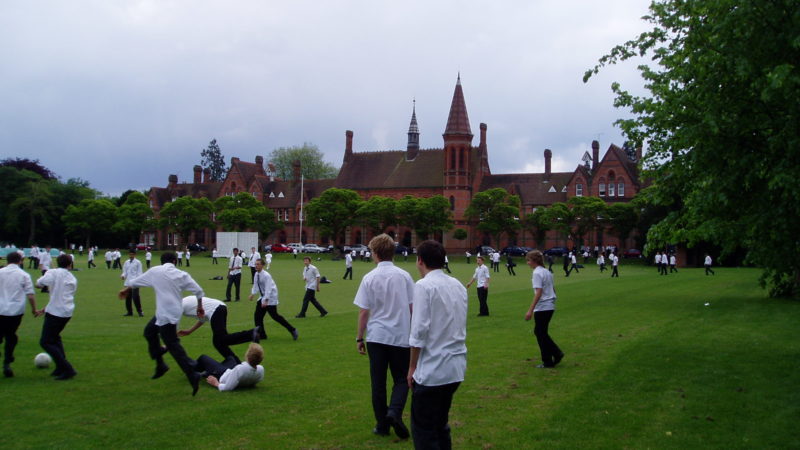Academies - one of the coalition's flagship policies in 2010 - have not lived up to any of Michael Gove's big promises, a new report has found.

Free schools are not helping the children who need them most, a new report has found.
The flagship policy of former education secretary Michael Gove has not delivered on any of its promises, according to the National Education Union (NEU), which labelled academies an “expensive experiment”.
In 2010, free schools were announced by the Tories as a way to drive up standards in areas where schools were performing badly.
The scheme allowed parents, teachers, community or religious groups, charities, trusts and businesses to establish ‘innovative’ new academies that were independent of the local authority but funded by central government.
But according to the first independent report into the scheme – released today by the Education Policy Institute – very few free schools have actually been opened in the last seven years and those which have are a disappointment.
Despite all the fuss surrounding the scheme, free schools currently make up only 2% of UK state schools and they are not accessible to two-thirds of the population, who do not live in the catchment area.
They are badly distributed around the country and have cost the government too much money, the NEU said.
Dr Mary Bousted, joint general secretary of the National Education Union, said:
“The rationale for free schools is flawed. Free schools have created surplus school places in areas where they aren’t needed, which isn’t a good use of tax payers’ money, particularly in the middle of a school funding crisis.
“Ministerial claims that free schools perform better cannot be justified, because too few free school have been inspected and inspections have not included the full pupil age range.”
Students at free schools are also demographically different to average state school pupils, the report found: Only 24 per cent of pupils attending free schools in the most disadvantaged areas are on free meals, compared to 32 per cent of all state school students.
Dr Bousted said:
“Free schools in disadvantaged areas fail to take their fair share of poor pupils. And, when first established, they are not popular with parents, with first preferences well behind other types of school.
“Theresa May should read this report carefully and reconsider her pledge to establish another 500 free schools. It would be a far better use of public money to rebuild and refurbish existing schools, many of which are in dire need of repair, as these schools have taken the lion’s share of the increased numbers of pupils, and will continue to do so.”
According to the report, many academies have opened in areas where the schools were already doing well, defeating their purpose. They are the most unpopular sort of school among parents and many pupils to school further away to avoid them.
Maybe it’s time to scrap the experiment – and the distraction – and focus on investing in our state schools instead.
Charlotte England is a freelance journalist and writer at Left Foot Forward. Follow her on Twitter.
Left Foot Forward doesn't have the backing of big business or billionaires. We rely on the kind and generous support of ordinary people like you.
You can support hard-hitting journalism that holds the right to account, provides a forum for debate among progressives, and covers the stories the rest of the media ignore. Donate today.




8 Responses to “It’s official: Free schools have failed to deliver”
Robert Wilkinson
It may be better to not refer to “Academy Trust chains”, but to strip of the gloss and call them what they are, which is “private companies” who make their profit from educating our children?
patrick newman
Robert, you are right. The process of creating an academy involves conveyancing property and equipment to a private organisation. Furthermore, that organisation has virtually no local accountability and any supervision flows from the faceless bureaucrats grandly and inappropriately titled “Regional School Commissioners” who do not have the resources to provide effective external governance.
Alasdair Macdonald
Robert and Patrick, you have it right. This is another variation on PFI/PPP, in which public funding pays exorbitant fees to pay for a service which it ran itself, but was not-for-profit.
Have a look at a recent video made about the sharp practices involved in the awarding of a PFI contract for four schools in North Ayrshire in the first decade of this century, when new Labour was telling us it was ‘The only Game in Town’. Search under that title. Bear in mind as you watch, that Scotland has different legal and educational systems from those in England and Wales, but fraud is fraud under any jurisdiction.